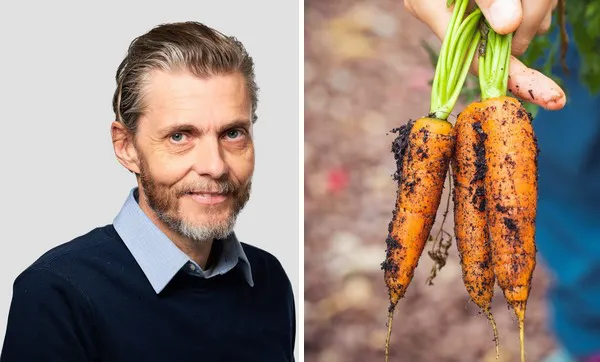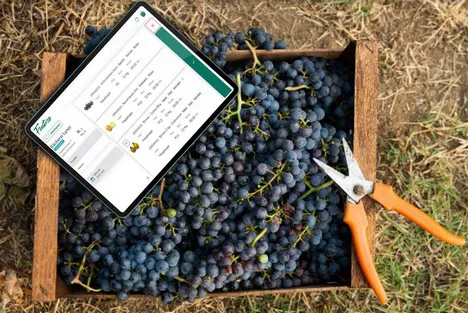Within the framework of a regional development project (PRE project) supported by the Swiss Confederation and the Canton of Fribourg, the Bern University of Applied Sciences (School of Agricultural, Forestry and Food Sciences, HAFL) is involved with organic producers in the Fribourg Seeland region.
One of the sub-projects focuses on B2B marketing of regionally produced organic products. Prof. Lorenz Probst, Co-Head Entrepreneurship Office BFH & Project Manager HAFL has been accompanying this project for several years. To digitalize the business processes of newly founded company B2B PRE Bio Gemüse Seeland Ltd, the choice fell on Swiss ERP process Frutico. Frutico contact Matthias Müller spoke with Prof. Probst (pictured below) about digitization in vegetable farming.

M. Müller: What is the B2B PRE Bio Gemüse Seeland Ltd?
Probst: "The PRE "Bio Gemüse Seeland" is controlled by the supporting association PRE BioGemüse Seeland, in which producers as well as producer organizations from the canton of Fribourg have joined forces with a high financial participation. They are all striving to maintain or expand the added value in the Fribourg Seeland. The project includes various sub-projects. For instance, organic vegetables and tourism (under the leadership of Murten Tourism) are promoted, so that the organic production of the Lake District can be perceived as an experience with all the senses.
Based on a needs analysis, B2B PRE Bio Gemüse Seeland was founded; it will operate under a brand to be redefined - here, too, the circle of partners consists of producer organizations and organic producers. The business model envisages that regional organic products can be procured in a simple way and at one place, thus providing a "one-stop shopping experience". Several target groups (all B2B) have been defined. Marketers, local retailers and restaurateurs can be mentioned as examples."
Why is the Bern University of Applied Sciences involved with organic producers?
"HAFL as a department of the Bern University of Applied Sciences enjoys an excellent reputation in the agricultural, forestry and food sector. This is thanks to the commitment of numerous experts who work very closely with the sectors. Research and service mandates from the entire spectrum of agriculture are processed; and this encompasses stakeholders that are active within conventional agriculture. Within agriculture, the circular model and sustainability have been well established for years - so organic farming is almost automatically part of HAFL's field of interest. When asked to accompany the project by the PRE project management, I did not have to hesitate for long. We are very happy to work on projects that have a direct impact on society, and that is definitely the case here."
What do you think about the importance of this industry and its development potential in the region and in Switzerland?
"In the organic food sector, we have seen continuous growth for years. In 2021, Swiss people bought organic products for around CHF 4,005 million, really making a commitment to this form of production. This corresponds to an organic value share of around 11 percent for food. We expect this growth trend to continue. Out-of-home organic consumption (e.g., in community catering and in the area of processed products) is identified as one of the drivers. In addition to organic, regionality also plays a major role. Depending on the survey, the regional aspect in some cases is almost deemed more important when making purchasing decisions."
Isn't state economic promotion to be viewed critically?
"No, not at all. Because we can certainly afford innovation as a society; we even need it in order to further expand our competitiveness. In the current Agriculture Act (Art. 93ff.) - which, it should be noted, was created through a political process and thus meets with great acceptance by the majority - the legislator provides that the federal government, together with the respective location canton, can promote projects that can contribute to regional (i.e. decentralized) value creation. In order to receive subsidies, detailed business plans must be drawn up, showing that the subsidized projects will be self-supporting after six years."
"What I find great about this funding instrument is that it is accessible to all, i.e. regardless of whether organic or conventional production is involved. What is required is a sponsorship that consists of a majority of direct payment beneficiaries and several partners along the value chain. So the call is actually for ideas and projects to be implemented in this way."
"It is important to understand that federal funding can only be awarded if formal and substantive conditions are met. Among these are the stipulation that the respective canton must approve the project and participate financially, i.e. it should also pays out subsidies. Also, private parties should participate substantially in the project; in the case of the Seeland PRE, private participation amounts to around CHF 61 million."

What is your assessment of the potential of digitization?
"BFH has defined 'humane digital transformation' as one of its three strategic topics. The transformation cannot be stopped, but we can help shape it! At the newly established firm, business processes are being digitized - where a very high potential for improvement is still identified in many areas of the value chain. BUT the personal contact between customers and producers is not being neglected. You have to be able to perceive food with all your senses."
"B2B customers also want this. So a "hybrid business model" must be developed. The automated processes should give employees the opportunity to personally attend to customers' concerns and to accompany them in a constructive way while they shop. The "service après ventes" and customer care remain central. The team around project manager Nicolas Hauert has already come up with a lot here. Let us surprise you."
And of course we want to know: Why is Frutico allowed to participate in the project?
"We were looking for a platform in which we could already recognize a high level of expertise for our industry. We were less interested in a generic 'e-commerce' solution. The contact to a company that already had experience and also a certain 'track record' was important to us. The professionals from Deep Impact were able to show us that they are able to analyze and ultimately design the process landscape with us in such a way that our business model can be mapped and that we can offer our customers a great 'user experience'. Frutico also makes it possible for internal processes such as procurement, packaging and logistics to be digitized to a high degree, which will certainly give the new company a competitive advantage."
For more information:
Bernadette Hug
Frutico
Tel.: +41 52 551 07 11
bernadette@frutico.ch
www.frutico.ch
